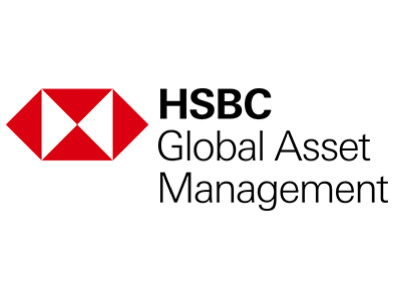HSBC has been running tracker funds for over 30 years
We think this fund is a good option for exposure to UK medium and small sized companies
The fund’s low charges should continue to help it track the FTSE 250 Index closely
This fund is on our Wealth Shortlist of funds chosen by our analysts for their long-term performance potential
How it fits in a portfolio
The HSBC FTSE 250 Index Fund offers a low-cost solution for tracking the performance of the FTSE 250 Index, which is made up of medium-sized UK companies. Medium-sized companies typically offer more growth potential than the larger companies of the FTSE 100, though they can be more volatile. They also tend to earn more of their revenue here in the UK.
That said, the broader FTSE 250 Index includes investment trusts, some of which invest in overseas markets, including higher risk emerging markets. This provides the fund with some international diversification. Although emerging markets only make up a very small portion of the overall fund.
An index tracker fund is one of the simplest ways to invest, and we think this fund could be a great, low-cost starting point for a portfolio aiming to deliver long-term growth. We think this fund could help diversify an investment portfolio focused on larger, or global, companies.
Manager
HSBC has been a provider of index trackers for over 30 years and is home to an experienced management team. Each fund has a primary, secondary and deputy fund manager, who tend to specialise in a particular region, though in practice the team as a whole helps to manage each fund.
Nelson Gu specialises in the UK and is the primary manager on this fund. Gu joined HSBC’s ETF & Indexing Equity team in 2016 as an Index Analyst and worked his way up to become a portfolio manager. He’s been a Senior Portfolio Manager since 2019 and has 11 years of industry experience.
Many HSBC portfolio managers also have wider responsibilities across the business, such as working on projects to understand their clients’ needs in more detail. This helps them drive change and innovation, which we think complements their role.
Process
The fund aims to track its benchmark, the FTSE 250 Index, by investing in all the companies in the index, and in the same proportion. This is known as full replication. The team aims to track the index as closely as possible by reducing trading costs, which is a key part of their strategy.
There may be instances when it’s not possible or practical for the fund to invest in every company in the index. This is because it's sometimes difficult to buy and sell the smallest companies quickly or at low cost, which could ultimately impact performance.
Stamp duty, a government tax that’s paid on the purchase of UK listed shares, is one of the main contributors to the tracking difference between the fund and the index. Because of this, the team try to reduce turnover in the portfolio, which refers to the frequency at which shares are bought and sold.
The fund also participates in securities lending whereby some of the investments in the portfolio are lent to others in exchange for a fee. This helps to offset some of the costs of running the fund, but also adds risk.
Culture
The passive investment team at HSBC may not be as large as at some big index providers, though it's still experienced and committed to improving ways of tracking the index closely. The team is open when it comes to sharing ideas and information. We believe this adds good challenge on how to run the fund effectively.
Employees are also encouraged to participate in HSBC’s share save scheme which should encourage them to be more engaged with the growth of the company. This means portfolio managers’ interests are better aligned with investors’.
ESG Integration
HSBC’s active and passively managed portfolios exclude shares or bonds issued by companies involved in the development, production, use, maintenance, sale, import or export, storage or transportation of weapons banned by international convention. They’ve also committed to phase-out active holdings in issuers exposed to thermal coal in the OECD and EU by 2030, and by 2040 in the rest of the world.
Fund managers meet regularly with companies and challenge them on corporate strategy, financial and non-financial performance and risk, allocation of capital and management of environmental, social and governance issues. They prioritise engagement based on the scale of client holdings, salience of the issues concerned, and overall exposure to the issue in question.
The HSBC Global Asset Management website clearly communicates the firm’s views on a number of ESG-focused topics, such as just transition, circular economy and natural capital, and outlines the action they’ve taken as a result, including setting targets and signing up to relevant industry schemes. The firm also outlines its approach to Responsible Investment, and provides a number of case studies, in its comprehensive annual Responsible Investment Review.
HSBC’s Stewardship team is responsible for voting, and voting decisions are arrived at with reference to a comprehensive voting guidelines policy. Voting activity is disclosed on a company-by-company basis, and votes against management are accompanied by a rationale.
Cost
The fund has an ongoing annual fund charge of 0.40%, but a discount of 0.05% is available for HL investors, which reduces the charge to 0.35%. Our platform fee of up to 0.45% per annum also applies, except in the HL Junior ISA, where no platform fee applies.
In early 2023, HSBC altered the way it calculates its ongoing charges figure (OCF) in line with recommendations from the Investment Association (IA).
The IA issued guidance in July 2020 and reconfirmed its position in January 2022, concerning the disclosure of costs and charges for UK funds. More specifically, the IA guidance indicated that the OCF for UK funds should take account of ‘look-through’ costs for underlying investments like investment trusts and real estate investment trusts (REITs) held within the portfolios.
Incorporating the new guidance has led to a material increase in the OCF for the HSBC FTSE 250 Index fund. However, this does not represent an increase to actual management or operational costs investors in the fund experience. These costs have always existed and have been reflected in the performance of the funds. This is only a change to the way costs are disclosed.
In September 2024, the UK government and Financial Conduct Authority lifted these cost disclosure requirements temporarily as they are intending to replace the current EU-inherited regulation with a new framework tailored towards UK markets and firms. This is expected to be in place in 2025. We will monitor developments and HSBC’s response to this update.
Performance
Over the last 10 years, the fund has tracked the FTSE 250 Index closely, returning 69.47%* versus 74.06% for the index. As you would expect from an index tracker fund, it’s fallen behind the benchmark over the long term because of the costs involved in running the fund. However, the tools used by the managers have helped reduce the fund’s tracking difference. Remember, past performance isn’t a guide to future returns.
The valuation of smaller and medium sized companies is more reliant on future earnings growth and cashflows and they typically rely more on borrowing compared to larger companies. Lower interest rates and inflation can benefit smaller companies as it reduces their borrowing and operating costs.
Interest rates in the UK were increased to their highest level since 2008 in August 2023. After holding rates at a 16 year high for a full year, the Bank of England cut rates from 5.25% to 5% in August 2024. Inflation in the UK has been on a downward trend over the year, hitting its 2% target in May and June, but has edged back up slightly since then.
Over the 12 months to the end of August, the fund has risen by 16.99% compared to 17.27% for the benchmark. Falling inflation and the anticipation of interest rate cuts throughout the year has been a tailwind for smaller companies and has improved sentiment towards the UK market.
Given HSBC’s size, experience and expertise running index tracker funds, we expect the fund to continue to track the index well in the future, though there are no guarantees.
Aug 19 – Aug 20 | Aug 20 – Aug 21 | Aug 21 – Aug 22 | Aug 22 – Aug 23 | Aug 23 – Aug 24 | |
|---|---|---|---|---|---|
HSBC FTSE 250 Index | -6.67% | 39.07% | -19.35% | 0.95% | 16.99% |
FTSE 250 | -6.20% | 38.20% | -18.92% | 0.86% | 17.27% |


